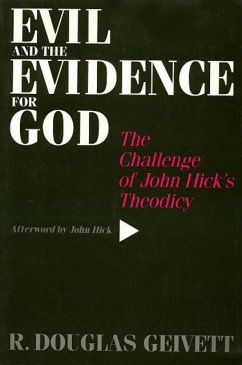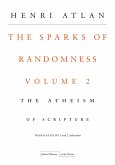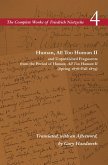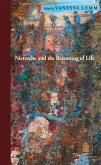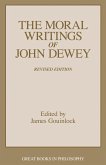Many have thought that the reality of evil in the world makes the existence of God unlikely and religious belief irrational. The most influential contemporary solution to this problem has been offered by philosopher John Hick: God is responsible for evil, using it as a soul-builder to make human beings into morally perfect creatures. This book is an appraisal of Hick's work on the specific topic of theodicy - his effort to cope philosophically with the problem of evil from within the Judeo-Christian tradition. R. Douglas Geivett seeks to show why any adequate response to the problem of evil must begin with the positive reasons one might have for believing in God. Geivett begins with a survey of three influential figures who grappled with this question: St. Augustine, St. Thomas Aquinas, and Gottfried Leibniz. Hick's approach to the problem of evil is then contrasted with their views. The author makes a case for the possibility of natural theology and he defends the view that it is rational to believe in the existence of God, even given the reality of evil in the world. Geivett takes issue with Hick's approach to the significance of evil, the nature of human freedom, and the character of the afterlife. He argues for a return to the Augustinian free-will tradition: that creatures with free wills are responsible for evil. This discussion of one of the most challenging questions in the philosophy of religion concludes with an afterword by John Hick in which he responds to the author's thesis.
Hinweis: Dieser Artikel kann nur an eine deutsche Lieferadresse ausgeliefert werden.
Hinweis: Dieser Artikel kann nur an eine deutsche Lieferadresse ausgeliefert werden.

